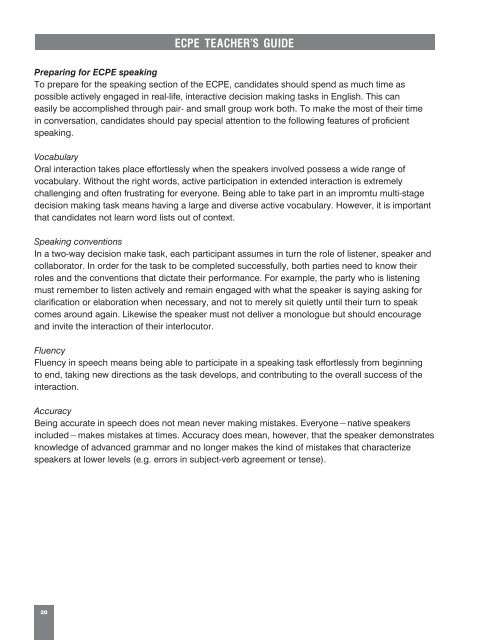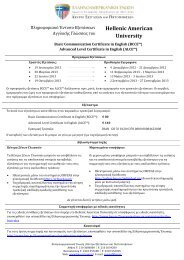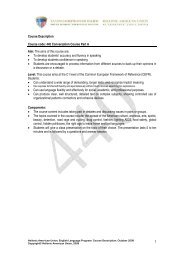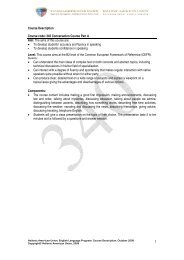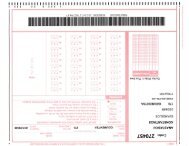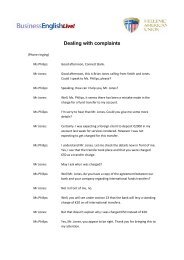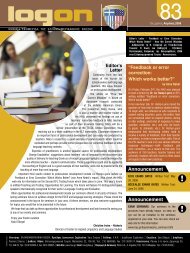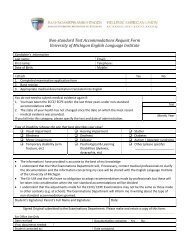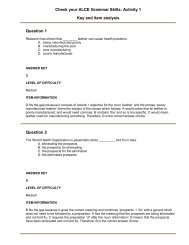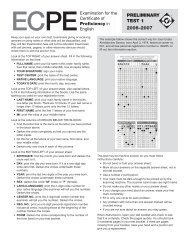ecpe teacher's guide - Hellenic American Union
ecpe teacher's guide - Hellenic American Union
ecpe teacher's guide - Hellenic American Union
Create successful ePaper yourself
Turn your PDF publications into a flip-book with our unique Google optimized e-Paper software.
<strong>ecpe</strong> teacher’s <strong>guide</strong><br />
Preparing for ECPE speaking<br />
To prepare for the speaking section of the ECPE, candidates should spend as much time as<br />
possible actively engaged in real-life, interactive decision making tasks in English. This can<br />
easily be accomplished through pair- and small group work both. To make the most of their time<br />
in conversation, candidates should pay special attention to the following features of proficient<br />
speaking.<br />
Vocabulary<br />
Oral interaction takes place effortlessly when the speakers involved possess a wide range of<br />
vocabulary. Without the right words, active participation in extended interaction is extremely<br />
challenging and often frustrating for everyone. Being able to take part in an impromtu multi-stage<br />
decision making task means having a large and diverse active vocabulary. However, it is important<br />
that candidates not learn word lists out of context.<br />
Speaking conventions<br />
In a two-way decision make task, each participant assumes in turn the role of listener, speaker and<br />
collaborator. In order for the task to be completed successfully, both parties need to know their<br />
roles and the conventions that dictate their performance. For example, the party who is listening<br />
must remember to listen actively and remain engaged with what the speaker is saying asking for<br />
clarification or elaboration when necessary, and not to merely sit quietly until their turn to speak<br />
comes around again. Likewise the speaker must not deliver a monologue but should encourage<br />
and invite the interaction of their interlocutor.<br />
Fluency<br />
Fluency in speech means being able to participate in a speaking task effortlessly from beginning<br />
to end, taking new directions as the task develops, and contributing to the overall success of the<br />
interaction.<br />
Accuracy<br />
Being accurate in speech does not mean never making mistakes. Everyone—native speakers<br />
included—makes mistakes at times. Accuracy does mean, however, that the speaker demonstrates<br />
knowledge of advanced grammar and no longer makes the kind of mistakes that characterize<br />
speakers at lower levels (e.g. errors in subject-verb agreement or tense).<br />
20


